Become a knowledge creator
The Master of ICT Research is an advanced coursework and research program. Coursework will consist of one year of study in three broad fields in ICT, including Research proposals, followed by a year of Research thesis to complete. The research degree teaches you the fundamentals of knowledge creation. The skills you gain will support you throughout your career.
This course will give you a broad grounding in networking, data analytics, telecommunication engineering and the Internet of Things. Then you'll choose one area to focus on in your research and dissertation. You'll learn to solve complex problems with innovative ideas.
Your research will contribute to the fourth industrial revolution. You'll become a subject matter expert with the chance of being published or speaking at conferences presenting your research.
DURATION
2 Years (4 Semesters) Full-Time or Equivalent Part-TimeINTAKES
March, JulyLOCATION
Sydney, MelbourneAQF LEVEL
Level 9| Duration 2 Years (4 Semesters) Full-Time or Equivalent Part-Time | |
| Intakes March, July | |
| Location Sydney, Melbourne | |
| AQF level Level 9 |
COURSE DETAILS
Create and share knowledge
When you conduct research, you learn through action. The Master of ICT Research blends ICT and research skills. This combination will allow you to enrich business strategy and project management, improving decision-making.
You can look at research as uniting several core elements. There's critical thinking, identifying and solving problems, data collection and analysis and communication. Each one of these elements is vital for your future success.
Career outcomes
MIT has designed this course to address current industry demand. Graduates become professionals with sharpened business skills and leadership potential.
The average entry level salary for non-doctorate researcher jobs in Australia ranges from $70k to $100k. Researchers enjoy working in both higher education and business sectors.
LEAD THROUGH KNOWLEDGE CREATION
Researchers create original knowledge, which drives the digital economy.
The Master of ICT Research teaches you the fundamentals of knowledge creation. The skills you gain will support you throughout your career.
Gain your expertise in emerging fields such as AI integration, quantum computing, and cybersecurity to address the challenges of the digital age.
This course will give you a broad grounding in networking, data analytics, telecommunication engineering and the Internet of Things. Then you'll choose one area to focus on in your research and dissertation. You’ll learn to solve complex problems with innovative ideas.
Your research will contribute to the fourth industrial revolution. You'll become a subject matter expert with the chance of being published or speaking at conferences presenting your research.
THIS COURSE INCLUDES:
PROBLEM SOLVING
Use the latest tools to design solutions, test system performance, and strengthen ICT infrastructure in areas such as networks, cloud systems, and cybersecurity.
RESEARCH THAT MATTERS
Investigate real-world business issues – from organisational change to market behaviour – and deliver solutions with impact.
FRESH THINKING
Apply your research skills to new areas of business and develop solutions that respond to industry challenges.
RESEARCH SKILLS
Master the latest methods in qualitative and quantitative research, data analysis, and project design – preparing you for careers in academia or industry.
1:1 Mentoring
Work closely with research mentors who provide guidance, regular feedback, and support throughout your research journey.
APPLIED RESEARCH
Turn raw data into meaningful insights by applying the latest methods – including machine learning, predictive modelling, and intelligent systems.
CAREER PATHS
Graduates of this course will work in ICT and related industries, including:
- Data Analyst
- Data Scientist
- AI Research Scientist
- Data Management
- Network Analyst
- Cyber Security Analyst
- Information Security Analyst
- Forensic Computer Analyst
You can find work in software engineering companies like Google, AWS, KPMG, Defence, CISCO, Huawei, Ericsson, Telstra, and Optus. Or find research roles within the public sector or higher education.
PROFESSIONAL RECOGNITION AND ACCREDITATION
The Master of ICT Research is accredited by
- TEQSA (Tertiary Education Quality and Standards Agency)
- Australian Quality Framework (AQF) Level 9
MIT has a proud history of providing quality assured and accredited qualifications in Information Technology and has been a leader in creating flexible courses that adapt to new technologies as they emerge.
COURSE STRUCTURE
The economy of the future relies on original knowledge creation. Research is an important tool to assess what's working and what's not
This course produces graduates with a blend of in-demand IT skills. With these skills, you'll be able to improve decision-making in business.
We've created this course in consultation with industry to meet market demand. Your capstone project will be with a real industry client and supported by MIT's subject matter experts.
Graduate with the professional skills to pursue a rewarding career in leadership.
The Master of ICT Research course builds strong research skills, including
- analytical thinking and innovation
- problem identification and problem solving
- data collection and analysis
- information dissemination and communication
- active learning skills
- development and application of algorithms
These skills are key if you want to excel in your career. The World Economic Forum includes these skills within the top 10 skills in most demand in the workplace.
Students develop applied technical skills, including
- developing computer networks
- defending computer networks and infrastructure
- designing and deploying communication networks
- deriving intelligence from data with advanced analytics algorithms and software
- gaining mastery of the tools and techniques used for data management and analysis
Students get hands-on experience
- applying machine learning and optimisation techniques
- learning to find critical patterns in datasets
- extracting meaning from raw data
- developing analytic dashboards
- creating visual presentations for non-technical audiences
- design and implementation of modern networks
- deploying IOT systems
- planning of mobile communication networks
- market potentials of new technologies
By the time you graduate, you'll be able to create communication circuits. You'll also have the skills to apply system design software to the Internet of Things and other networks.
Your thesis will rely on
* statistics and probabilistic reasoning
* research design
* innovation and leadership in research
Each unit consists of 20 credit points. A full-time study load is 60 credit points per trimester.
MN404 and MN405 are available for students who need to supplement their undergraduate degree program. Students who have gaps in their undergraduate program will need to undertake these units to ensure they meet prerequisite requirements for core units.
A typical course outline:
Two electives + one advanced elective from the same specialisation
AIM100 Academic Integrity Module*
MR50l Research Skills
MR502 Quant & Qua I Research Techniques
MR601 Research Proposal & Literature Review
MR603 Research Thesis 1 (Successful completion of all first-year units)
MR604 Research Thesis 2 (pre-requisite MR603)
COURSE UNITS
Master of ICT ResearchCore Units
- MR501 Research Skills
- MR502 Quantitative and Qualitative Research Skills
- MR601 Research Proposal & Literature Review
- MR603 Research Thesis 1 (prerequisite MR601)
- MR604 Research Thesis 2 (prerequisite MR603)
Elective Units
- MDA511 Mathematical and Statistical Methods
- MDA512 Data Science
- MDA521 Data Security and Privacy
- MDA522 Artificial Intelligence
- MDA523 Software Engineering Fundamentals
- MN511 Enterprise and Cloud Networks
- MN521 Network Automation
- MN522 Information Security
- MN523 Cyber Security and Analytics
- MN631 Blockchain technologies and strategy
Advanced Electives
- MDA611 Predictive Analytics (MDA511)
- MDA621 Big Data Analytics and Visualization (MDA512)
- MDA622 Human-Computer Interaction Design Any MDA unit specified by Course Coordinator
- MN623 Cyber Security and Analytics
- MN624 Digital Forensics
- MN625 Software Managed Networks
- MN632 Cryptofinance and legal framework Any MNet unit specified by Course Coordinator
RESEARCH AREAS
- Cloud Computing
- Cybersecurity
- Machine Learning
- Artificial Intelligence
- Data Analytics/ Data Science
- Software Engineering
- Telecommunications Engineering
- Computational Intelligence
- Micro Robotics
- Mechatronics
- Remote Sensing
LEARNING OUTCOMES
- Analyse and evaluate complex problems to devise ethical technical solutions within the Information Technology knowledge domain;
- Skillfully demonstrate initiative, resilience, expert judgement and autonomy as a learner;
- Demonstrate in-depth specialist understanding of a complex suite of knowledge by contributing to a body of knowledge using research methods and principles;
- Apply highly developed communication skills to disseminate research outcomes for a variety of mediums and audiences;
ENTRY REQUIREMENTS
The requirements for admission to this course are:
- A completed Australian Bachelor degree or equivalent in any ICT discipline.
- IELTS Academic, Overall 6.5 with no band less than 6.0 or equivalent.
- Other qualifications and experience may, upon application by the student, be deemed equivalent to the coursework units by the Academic Board of the Institute.
English Language Requirements
| IELTS Academic |
Overall score 6.5 (no band less than 6.0) |
|---|---|
| TOFEL ibt |
Overall score 79-93 with minimum scores: Reading 13, Listening 12, Speaking 18, Writing 21 |
| PTE Academic |
Overall score 59 with no score less than 52 |
| Cambridge CAE |
CAE score of 176 (no band less than 169) |
IELTS Academic
Overall score 6.5
(no band less than 6.0)
TOFEL ibt
Overall score 79-93 with minimum scores: Reading 13, Listening 12, Speaking 18, Writing 21
PTE Academic
Overall score 59 with no score less than 52
Cambridge CAE
CAE score of 176 (no band less than 169)
For further information:
Applicants must meet the academic entry requirements, including prerequisites for their chosen course.
Credit Transfer
Students can gain credit for learning already achieved. Applicants are assessed on a case-by-case basis. Learn more about credit transfer. Read more about the process.
Applications for credit transfer must be made before or during orientation and enrollment week.
GAIN REAL-WORLD EXPERIENCE USING TOOLS
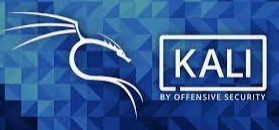


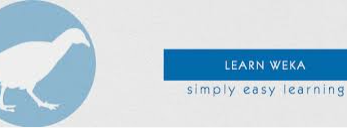



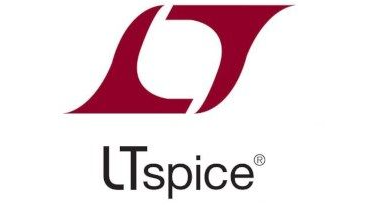


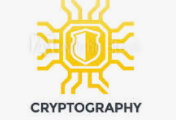
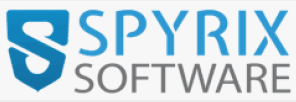
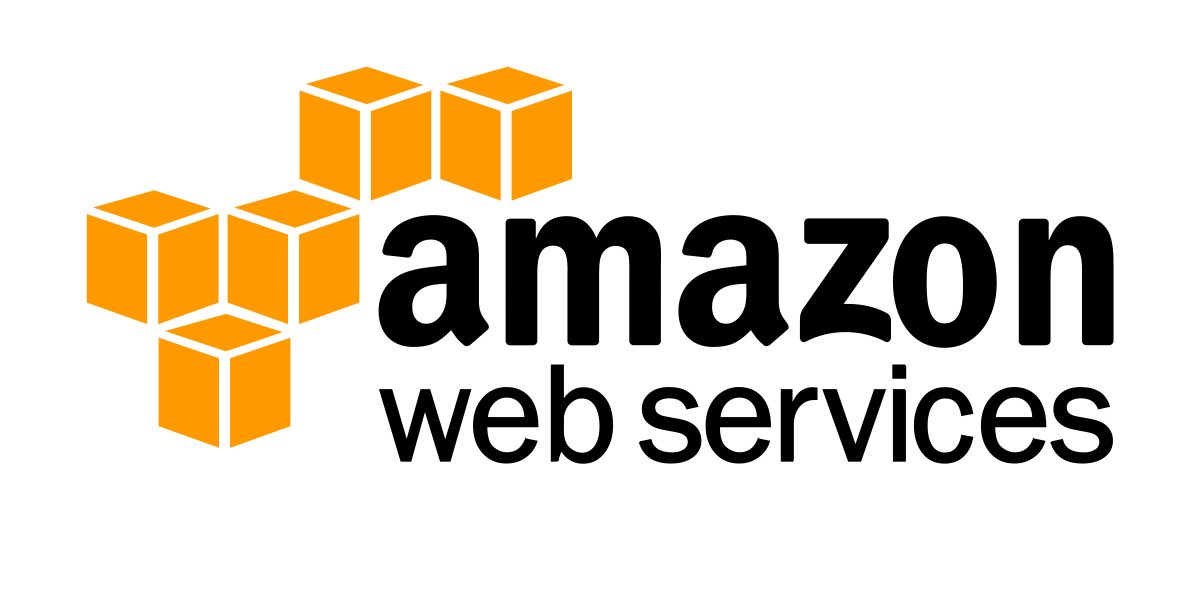
Use industry standard ICT tools, including
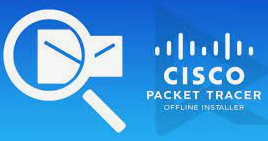
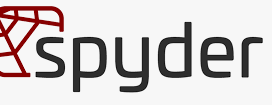
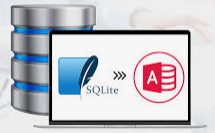

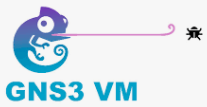

Our state-of-the-art labs allow you to learn new disciplines
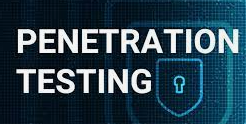


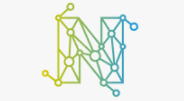

FEE INFORMATION
Study now and pay later with FEE-HELP.Students studying at MIT may be eligible for FEE-HELP. FEE-HELP is a loan scheme that assists eligible fee-paying students to pay their tuition fees. An eligible person may borrow up to the FEE-HELP limit to pay tuition fees over their lifetime.
Read more about FEE-HELP or visit Study Assist.
Tuition feesFor fee information visit the tuition fee page.
Financial assistance
Youth and student allowances
For details on Youth Allowance, Austudy and ABSTUDY, visit Human Services.
FEE INFORMATION
Tuition FeesFor the latest fee information visit the Tuition Fee Page.
If you have any questions regarding fees or payment options, please contact the Admissions Team at enquiries@mit.edu.au
FREQUENTLY ASKED QUESTIONS
What are the entry requirements?
- Successful completion of Australian equivalent relevant bachelor's or master's degree
- IELTS score 6.5 or equivalent, with no band score below 6.0.
Students who completed a degree in Australia may be eligible for an English language waiver.
Do students need to know what topic they want to look at for their research thesis?
No, they don't need to know their topic before they start the degree. We've designed the course to introduce students to a range of topics so they can pick one that interests them.
How much support is available during the research process?
We will support students with both primary and secondary supervision from early in the course when they select their chosen subject area.
How many words is the research thesis?
The research thesis will be 20,000 - 30,000 words.
How long will it take to write the research thesis?
We expect students to begin their research thesis research towards the end of their first year of study and over that holiday period. They'll then be working intensively on their thesis until the end of the second year of study.
Where can students expect to publish their thesis?
A simplified excerpt of your thesis could appear in a publication like The Conversation.
Can I work while doing my research degree in Australia?
You must check your visa conditions so you understand all the restrictions on your student visa. You can do this on the Department of Home Affairs Visa Entitlement Verification Online system (VEVO).
If you are a postgraduate research student on a student visa, you can work without any limitations during your studies. However, you'll need to maintain full-time enrollment and finish your course within the duration specified in your eCoE.
Student work hour restrictions
| Student type | When a course is in session | When a course is not in session |
|---|---|---|
| ELLICOS, undergraduate and postgraduate students who have started their course | 48 hours per fortnight | Unlimited hours |
| Graduate research degree students who have started their course | Unlimited hours | N/A |
Work hour restrictions for dependants
| Dependant type | When a course is in session | When a course is not in session |
|---|---|---|
| Dependants of student visa holders enrolled in a Master's and Research degree | Unlimited hours | N/A |
| Dependants of student visa holders enrolled in an ELICOS and undergraduate degree | 48 hours per fortnight | N/A |
Please visit the Department of Home Affairs website for a complete list of work and other visa conditions.
Can students study this course online?
This course is available on campus, face-to-face, in Melbourne and Sydney.
PREPARING YOUR APPLICATION
Before applying, make sure you:
- Meet the course entry requirements for the course you want to apply for.
- Have all your details ready—for example, your educational history, personal details, academic transcripts and award certificates.
What to include with your application?
- Evidence of completion of your previous studies that is award certificates or transcript with completion confirmed.
- Proof of identity, for example, your passport or birth certificate or citizenship.
- Evidence of English language skills (if you completed studies from a non-English speaking country).
- Proof of your permanent residency or citizenship if you were born overseas.
Certifying your academic documents
You should provide certified copies of your academic and other essential documents at the time of application.
Uploading your documents
You must upload all requested documents at the time of the application.
Learn more about the whole of the institution set here.
Contact us
Phone our friendly student recruitment team on 1800 648 669.
enquiries@mit.edu.au
COURSE DETAILS
Create and share knowledge
When you conduct research, you learn through action. The Master of ICT Research blends ICT and research skills. This combination will allow you to enrich business strategy and project management, improving decision-making.
You can look at research as uniting several core elements. There's critical thinking, identifying and solving problems, data collection and analysis and communication. Each one of these elements is vital for your future success.
Career outcomes
MIT has designed this course to address current industry demand. Graduates become professionals with sharpened business skills and leadership potential.
The average entry level salary for non-doctorate researcher jobs in Australia ranges from $70k to $100k. Researchers enjoy working in both higher education and business sectors.
LEAD THROUGH KNOWLEDGE CREATION
Researchers create original knowledge, which drives the digital economy.
The Master of ICT Research teaches you the fundamentals of knowledge creation. The skills you gain will support you throughout your career.
Gain your expertise in emerging fields such as AI integration, quantum computing, and cybersecurity to address the challenges of the digital age.
This course will give you a broad grounding in networking, data analytics, telecommunication engineering and the Internet of Things. Then you'll choose one area to focus on in your research and dissertation. You’ll learn to solve complex problems with innovative ideas.
Your research will contribute to the fourth industrial revolution. You'll become a subject matter expert with the chance of being published or speaking at conferences presenting your research.
THIS COURSE INCLUDES:
PROBLEM SOLVING
Use the latest tools to design solutions, test system performance, and strengthen ICT infrastructure in areas such as networks, cloud systems, and cybersecurity.
RESEARCH THAT MATTERS
Investigate real-world business issues – from organisational change to market behaviour – and deliver solutions with impact.
FRESH THINKING
Apply your research skills to new areas of business and develop solutions that respond to industry challenges.
RESEARCH SKILLS
Master the latest methods in qualitative and quantitative research, data analysis, and project design – preparing you for careers in academia or industry.
1:1 Mentoring
Work closely with research mentors who provide guidance, regular feedback, and support throughout your research journey.
APPLIED RESEARCH
Turn raw data into meaningful insights by applying the latest methods – including machine learning, predictive modelling, and intelligent systems.
CAREER PATHS
Graduates of this course will work in ICT and related industries, including:
- Data Analyst
- Data Scientist
- AI Research Scientist
- Data Management
- Network Analyst
- Cyber Security Analyst
- Information Security Analyst
- Forensic Computer Analyst
You can find work in software engineering companies like Google, AWS, KPMG, Defence, CISCO, Huawei, Ericsson, Telstra, and Optus. Or find research roles within the public sector or higher education.
PROFESSIONAL RECOGNITION AND ACCREDITATION
The Master of ICT Research is accredited by
- TEQSA (Tertiary Education Quality and Standards Agency)
- Australian Quality Framework (AQF) Level 9
MIT has a proud history of providing quality assured and accredited qualifications in Information Technology and has been a leader in creating flexible courses that adapt to new technologies as they emerge.
COURSE STRUCTURE
The economy of the future relies on original knowledge creation. Research is an important tool to assess what's working and what's not
This course produces graduates with a blend of in-demand IT skills. With these skills, you'll be able to improve decision-making in business.
We've created this course in consultation with industry to meet market demand. Your capstone project will be with a real industry client and supported by MIT's subject matter experts.
Graduate with the professional skills to pursue a rewarding career in leadership.
The Master of ICT Research course builds strong research skills, including
- analytical thinking and innovation
- problem identification and problem solving
- data collection and analysis
- information dissemination and communication
- active learning skills
- development and application of algorithms
These skills are key if you want to excel in your career. The World Economic Forum includes these skills within the top 10 skills in most demand in the workplace.
Students develop applied technical skills, including
- developing computer networks
- defending computer networks and infrastructure
- designing and deploying communication networks
- deriving intelligence from data with advanced analytics algorithms and software
- gaining mastery of the tools and techniques used for data management and analysis
Students get hands-on experience
- applying machine learning and optimisation techniques
- learning to find critical patterns in datasets
- extracting meaning from raw data
- developing analytic dashboards
- creating visual presentations for non-technical audiences
- design and implementation of modern networks
- deploying IOT systems
- planning of mobile communication networks
- market potentials of new technologies
By the time you graduate, you'll be able to create communication circuits. You'll also have the skills to apply system design software to the Internet of Things and other networks.
Your thesis will rely on
* statistics and probabilistic reasoning
* research design
* innovation and leadership in research
Each unit consists of 20 credit points. A full-time study load is 60 credit points per trimester.
MN404 and MN405 are available for students who need to supplement their undergraduate degree program. Students who have gaps in their undergraduate program will need to undertake these units to ensure they meet prerequisite requirements for core units.
A typical course outline:
Two electives + one advanced elective from the same specialisation
AIM100 Academic Integrity Module*
MR50l Research Skills
MR502 Quant & Qua I Research Techniques
MR601 Research Proposal & Literature Review
MR603 Research Thesis 1 (Successful completion of all first-year units)
MR604 Research Thesis 2 (pre-requisite MR603)
COURSE UNITS
Master of ICT ResearchCore Units
- MR501 Research Skills
- MR502 Quantitative and Qualitative Research Skills
- MR601 Research Proposal & Literature Review
- MR603 Research Thesis 1 (prerequisite MR601)
- MR604 Research Thesis 2 (prerequisite MR603)
Elective Units
- MDA511 Mathematical and Statistical Methods
- MDA512 Data Science
- MDA521 Data Security and Privacy
- MDA522 Artificial Intelligence
- MDA523 Software Engineering Fundamentals
- MN511 Enterprise and Cloud Networks
- MN521 Network Automation
- MN522 Information Security
- MN523 Cyber Security and Analytics
- MN631 Blockchain technologies and strategy
Advanced Electives
- MDA611 Predictive Analytics (MDA511)
- MDA621 Big Data Analytics and Visualization (MDA512)
- MDA622 Human-Computer Interaction Design Any MDA unit specified by Course Coordinator
- MN623 Cyber Security and Analytics
- MN624 Digital Forensics
- MN625 Software Managed Networks
- MN632 Cryptofinance and legal framework Any MNet unit specified by Course Coordinator
RESEARCH AREAS
- Cloud Computing
- Cybersecurity
- Machine Learning
- Artificial Intelligence
- Data Analytics/ Data Science
- Software Engineering
- Telecommunications Engineering
- Computational Intelligence
- Micro Robotics
- Mechatronics
- Remote Sensing
LEARNING OUTCOMES
- Analyse and evaluate complex problems to devise ethical technical solutions within the Information Technology knowledge domain;
- Skillfully demonstrate initiative, resilience, expert judgement and autonomy as a learner;
- Demonstrate in-depth specialist understanding of a complex suite of knowledge by contributing to a body of knowledge using research methods and principles;
- Apply highly developed communication skills to disseminate research outcomes for a variety of mediums and audiences;
ENTRY REQUIREMENTS
The requirements for admission to this course are:
- A completed Australian Bachelor degree or equivalent in any ICT discipline.
- IELTS Academic, Overall 6.5 with no band less than 6.0 or equivalent.
- Other qualifications and experience may, upon application by the student, be deemed equivalent to the coursework units by the Academic Board of the Institute.
English Language Requirements
| IELTS Academic |
Overall score 6.5 (no band less than 6.0) |
|---|---|
| TOFEL ibt |
Overall score 79-93 with minimum scores: Reading 13, Listening 12, Speaking 18, Writing 21 |
| PTE Academic |
Overall score 59 with no score less than 52 |
| Cambridge CAE |
CAE score of 176 (no band less than 169) |
IELTS Academic
Overall score 6.5
(no band less than 6.0)
TOFEL ibt
Overall score 79-93 with minimum scores: Reading 13, Listening 12, Speaking 18, Writing 21
PTE Academic
Overall score 59 with no score less than 52
Cambridge CAE
CAE score of 176 (no band less than 169)
For further information:
Applicants must meet the academic entry requirements, including prerequisites for their chosen course.
Credit Transfer
Students can gain credit for learning already achieved. Applicants are assessed on a case-by-case basis. Learn more about credit transfer. Read more about the process.
Applications for credit transfer must be made before or during orientation and enrollment week.
GAIN REAL-WORLD EXPERIENCE USING TOOLS













Use industry standard ICT tools, including






Our state-of-the-art labs allow you to learn new disciplines





FEE INFORMATION
Study now and pay later with FEE-HELP.Students studying at MIT may be eligible for FEE-HELP. FEE-HELP is a loan scheme that assists eligible fee-paying students to pay their tuition fees. An eligible person may borrow up to the FEE-HELP limit to pay tuition fees over their lifetime.
Read more about FEE-HELP or visit Study Assist.
Tuition feesFor fee information visit the tuition fee page.
Financial assistance
Youth and student allowances
For details on Youth Allowance, Austudy and ABSTUDY, visit Human Services.
FEE INFORMATION
Tuition FeesFor the latest fee information visit the Tuition Fee Page.
If you have any questions regarding fees or payment options, please contact the Admissions Team at enquiries@mit.edu.au
FREQUENTLY ASKED QUESTIONS
What are the entry requirements?
- Successful completion of Australian equivalent relevant bachelor's or master's degree
- IELTS score 6.5 or equivalent, with no band score below 6.0.
Students who completed a degree in Australia may be eligible for an English language waiver.
Do students need to know what topic they want to look at for their research thesis?
No, they don't need to know their topic before they start the degree. We've designed the course to introduce students to a range of topics so they can pick one that interests them.
How much support is available during the research process?
We will support students with both primary and secondary supervision from early in the course when they select their chosen subject area.
How many words is the research thesis?
The research thesis will be 20,000 - 30,000 words.
How long will it take to write the research thesis?
We expect students to begin their research thesis research towards the end of their first year of study and over that holiday period. They'll then be working intensively on their thesis until the end of the second year of study.
Where can students expect to publish their thesis?
A simplified excerpt of your thesis could appear in a publication like The Conversation.
Can I work while doing my research degree in Australia?
You must check your visa conditions so you understand all the restrictions on your student visa. You can do this on the Department of Home Affairs Visa Entitlement Verification Online system (VEVO).
If you are a postgraduate research student on a student visa, you can work without any limitations during your studies. However, you'll need to maintain full-time enrollment and finish your course within the duration specified in your eCoE.
Student work hour restrictions
| Student type | When a course is in session | When a course is not in session |
|---|---|---|
| ELLICOS, undergraduate and postgraduate students who have started their course | 48 hours per fortnight | Unlimited hours |
| Graduate research degree students who have started their course | Unlimited hours | N/A |
Work hour restrictions for dependants
| Dependant type | When a course is in session | When a course is not in session |
|---|---|---|
| Dependants of student visa holders enrolled in a Master's and Research degree | Unlimited hours | N/A |
| Dependants of student visa holders enrolled in an ELICOS and undergraduate degree | 48 hours per fortnight | N/A |
Please visit the Department of Home Affairs website for a complete list of work and other visa conditions.
Can students study this course online?
This course is available on campus, face-to-face, in Melbourne and Sydney.
PREPARING YOUR APPLICATION
Before applying, make sure you:
- Meet the course entry requirements for the course you want to apply for.
- Have all your details ready—for example, your educational history, personal details, academic transcripts and award certificates.
What to include with your application?
- Evidence of completion of your previous studies that is award certificates or transcript with completion confirmed.
- Proof of identity, for example, your passport or birth certificate or citizenship.
- Evidence of English language skills (if you completed studies from a non-English speaking country).
- Proof of your permanent residency or citizenship if you were born overseas.
Certifying your academic documents
You should provide certified copies of your academic and other essential documents at the time of application.
Uploading your documents
You must upload all requested documents at the time of the application.
Learn more about the whole of the institution set here.
Contact us
Phone our friendly student recruitment team on 1800 648 669.
enquiries@mit.edu.au
INDUSTRY RESEARCH PROJECTS
Businesses are shifting from specialist IT teams to integrated, multi-skilled teams. Employers are demanding graduates who are innovative thinkers, who can work collaboratively and can solve problems to create cost-effective business solutions.
That’s why we focus on meaningful individual research projects and building industry connections for all students in our industry projects.
These units provide students with real-world experience working for an industry client.
- Develop vital soft skills, like leadership, communication and negotiation, when you communicate and collaborate with a team of your peers
- Conduct high-level research, analysis and development
- Tackle complex real-world problems with technical and creative skills
OUR STAFF ARE LEADING INDUSTRY EXPERTS
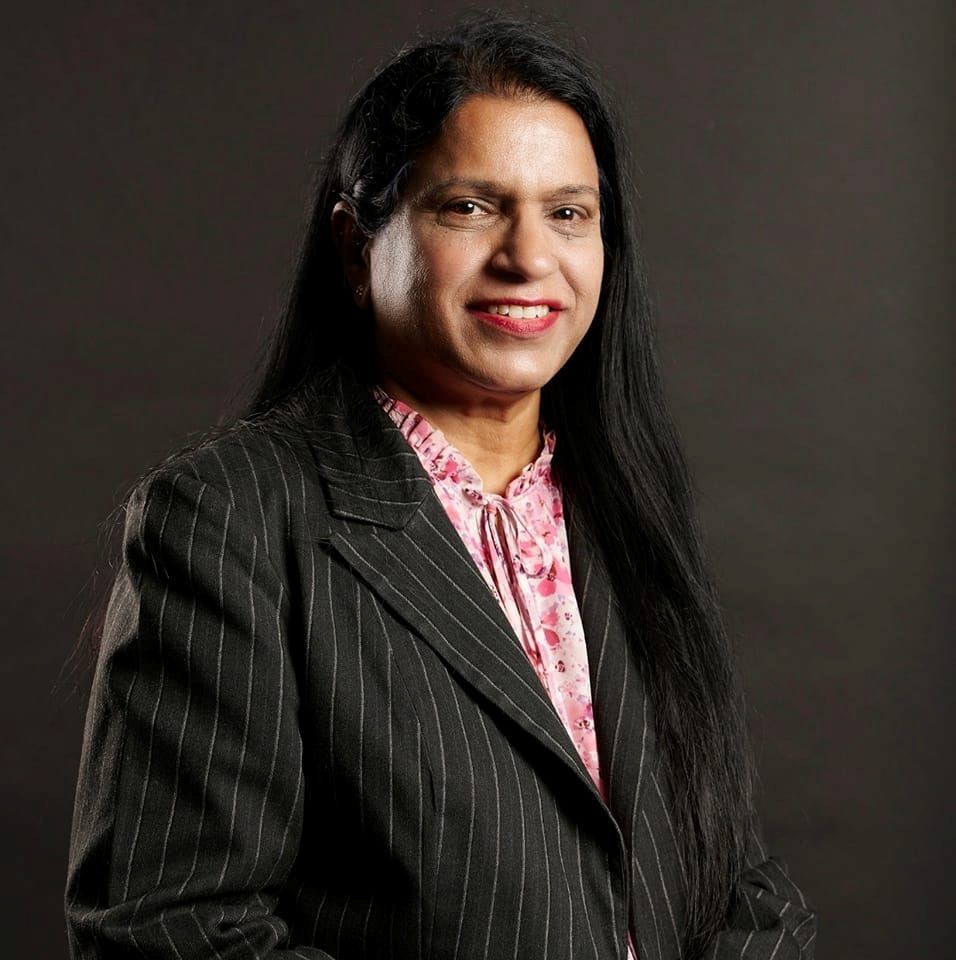
Prof. Savitri Bevinakoppa
Head of School – SITE and Course Coordinator
An expert in computing and mathematics, she has worked in computer science since 1989 watching the field as it evolves. From the early days of parallel computing to the complex networks we use today, Savitri has been at the forefront of it all. She has been embedded in our IT department developing and running our courses for more than a decade.
She has completed her Bachelor of Engineering (Electronics and Communication) in 1989 and Doctor of Philosophy (PhD) at Victoria University, Melbourne in 1996, writing her thesis on “Still Image Compression on Parallel Computer Architectures”. Savitri has more than 30 years of teaching and research experience in Engineering and Information Technology (IT) disciplines and has also worked in the industry as a manager for more than 10 years. She has demonstrated continuing scholarly and professional involvement in both learning & teaching and research, publishing a number of books and research papers nationally and internationally. She has obtained several industry grants and supervised many research students and research associates. She has chaired a number of conferences in multi-disciplinary areas and edited their proceedings.
Savitri has been involved in MIT Learning and Teaching Committee as a member and designed and developed courses in Engineering, Networking and Data Analytics. Previously, she was on the academic board for more than 6 years and worked as an acting head, School of IT and Engineering.
OUR STAFF ARE LEADING INDUSTRY EXPERTS

Prof. Savitri Bevinakoppa
Head of School – SITE and Course Coordinator
An expert in computing and mathematics, she has worked in computer science since 1989 watching the field as it evolves. From the early days of parallel computing to the complex networks we use today, Savitri has been at the forefront of it all. She has been embedded in our IT department developing and running our courses for more than a decade.
She has completed her Bachelor of Engineering (Electronics and Communication) in 1989 and Doctor of Philosophy (PhD) at Victoria University, Melbourne in 1996, writing her thesis on “Still Image Compression on Parallel Computer Architectures”. Savitri has more than 30 years of teaching and research experience in Engineering and Information Technology (IT) disciplines and has also worked in the industry as a manager for more than 10 years. She has demonstrated continuing scholarly and professional involvement in both learning & teaching and research, publishing a number of books and research papers nationally and internationally. She has obtained several industry grants and supervised many research students and research associates. She has chaired a number of conferences in multi-disciplinary areas and edited their proceedings.
Savitri has been involved in MIT Learning and Teaching Committee as a member and designed and developed courses in Engineering, Networking and Data Analytics. Previously, she was on the academic board for more than 6 years and worked as an acting head, School of IT and Engineering.
SPECIALIST KNOWLEDGE
MIT has provided tertiary education in leading industries since 1996. We have an outstanding reputation in business, IT and engineering.
Join a Supportive Network
When you study a Master of ICT Research, you’ll make friends and industry connections that last a lifetime. Our welcoming student support team will help you start your career on the right foot and stay in touch as your career progresses. Our alumni network is active and encouraging.
WE CARE ABOUT YOUR FUTURE
At MIT you’re more than a number. Our teachers know students by name. And our teaching methods support and challenge you to reach your potential.
Our care goes beyond the classroom. We ensure students have the support and skills they need to succeed in life and study.
We understand that choosing a course can be daunting at times. Our friendly student support service is there to answer your questions.
Let’s get started. Call us today.
At MIT you’ll experience great teaching in a supportive environment. And you’ll graduate with the skills you need to succeed.
Call our friendly student services team today to discuss your learning journey on +61 3 8600 6700.


